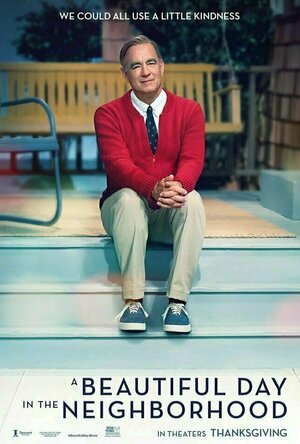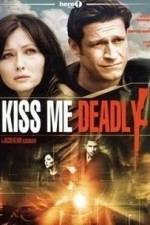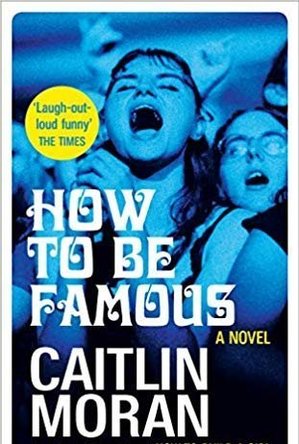A Sister's Memories: The Life and Work of Grace Abbott from the Writings of Her Sister, Edith Abbott
Book
Among the great figures of Progressive Era reform, Edith and Grace Abbott are perhaps the least...
Chris Miller recommended A Beautiful Day in the Neighborhood (2019) in Movies (curated)
Phil Lord recommended A Beautiful Day in the Neighborhood (2019) in Movies (curated)
Richard Hell recommended Kiss Me Deadly (2008) in Movies (curated)

Horror Stories: A Memoir by Liz Phair
Book
From the two-time Grammy-nominated singer-songwriter behind the groundbreaking album Exile in...
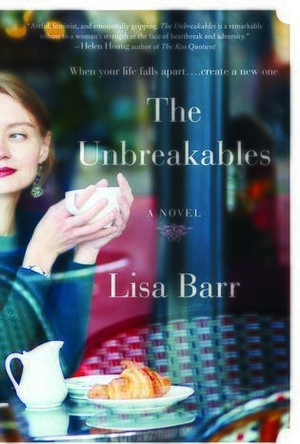
The Unbreakables: A Novel
Book
A delicious, sharp novel about a woman who jets off to France after her perfect marriage collapses,...
Fiction Contemporary
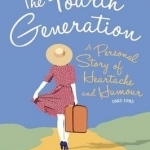
The Fourth Generation: A Personal Story of Humour and Heartache 1885-1985
Book
There are no exceptions and therefore there are no choices. This book is about the choices people...
Janeeny (200 KP) rated How to Be Famous in Books
Jul 8, 2019
As you can imagine, a booksellers TBR pile is a challenging Behemoth, so when ‘Raised by Wolves’ (a sitcom written by Caitlin Moran and her sister Caroline) came on the telly in 2013 I still hadn’t read ‘How to be a Woman’.
Happily, ‘Raised by Wolves’ was hilarious, putting Caitlin Moran well and truly on my radar as someone who had a lot of interesting and humorous opinions that I would really need to read about some day.
(On a little side note Alexa davies who plays Aretha in this is hilarious and worth keeping an eye on.)
Cut to 2019 Caitlin Moran has released 4 more books and I haven’t read a single one of them! So when NETgalley offered me a copy of ‘How to be famous’ in exchange for an honest review I had to say yes, as despite the fact that I actually own a copy of ‘How to be a girl’ I still haven’t read it, so I figured, if I have a deadline for a review that is going to spur me on to actually read this one!
It worked, I read it, and it was everything I thought it would be.
It had some definite laugh out loud moments, Morans humorous writing style comes through triumphantly.
So, the blurb . . .
“Johanna Morrigan (AKA Dolly Wilde) has it all: at eighteen, she lives in her own flat in London and writes for the coolest music magazine in Britain. But Johanna is miserable. Her best friend and man of her dreams John Kite has just made it big in 1994’s hot new BritPop scene. Suddenly John exists on another plane of reality: that of the Famouses.
Never one to sit on the sidelines, Johanna hatches a plan: she will Saint Paul his Corinthians, she will Jimmy his Pinocchio—she will write a monthly column, by way of a manual to the famous, analyzing fame, its power, its dangers, and its amusing aspects. In stories, girls never win the girl—they are won. Well, Johanna will re-write the stories, and win John, through her writing.
But as Johanna’s own star rises, an unpleasant one-night stand she had with a stand-up comedian, Jerry Sharp, comes back to haunt in her in a series of unfortunate consequences. How can a girl deal with public sexual shaming? Especially when her new friend, the up-and-coming feminist rock icon Suzanne Banks, is Jimmy Cricketing her?”
First off, despite the fact that this is the second book in a series, you don’t lose anything of the story by not having read the first one. If anything it makes you want to read the first one even more, as you want to know how Dolly got to where she is and the adventures she’s had on the way.
Secondly, the characters were just brilliant not a two-dimensional one among them, the dialogue just flows beautifully, and you’ll end the book wishing you were friends with them.
Thirdly, in my inexpert opinion its really well written, the story flows effortlessly and you are just grabbed by the collar and dragged along on this adventure.
I quite literally cannot find the words to say how much I admire Morans writing style, as I said before, this is so well written and the characters are so relatable. It’s full of many laugh out loud moments and some very frank and hilarious conversations about sex, and amongst the humour are actually some quite serious issues, like the clear displays of the inequality of women within the music industry (even though this was set in the 90s, I’m sure much of it is still true today)
And coming from somebody who never seems to get symbolism or messages from books, I took away a LOT from this one
One of my favourite moments was a letter that Dolly writes to her musician friend (Johnny) who is troubled by accusations of ‘selling out’
It basically addresses the scorn heaped on bands, with a predominantly teenage female following, by ‘Elitist’ fans and the music industry. She asks Johnny to appreciate his ‘screaming’ girls fans, as just because they’re louder, more emotional, younger, and haven’t been part of the fanbase since day one, doesn’t mean they don’t appreciate the music any less or feel any less. Yes, they are the ones putting money in your bank account, putting you in the charts, but just because they are part of the mass market doesn’t make their feelings any less valid.
Seeing as I’ve been both a ‘screaming girl fan’ and an ‘Elitist Fan’ I understand and appreciate what’s being said here.
There is so much to love bout this book, the strong female characters, the humour, the feminist message, and underneath it all a good old fashioned love story
Ivana A. | Diary of Difference (1171 KP) rated Quarry's Climax (Quarry #14) in Books
Aug 21, 2018
Quarry’s Climax is the 14th book of the Quarry series, and even though I only had the chance to read this one, the rest of the books are certainly something that I have put on my TBR list!
<img src="https://i.gr-assets.com/images/S/compressed.photo.goodreads.com/books/1498930963i/34014841._UY630_SR1200,630_.jpg"/>;
The plot is simple – until, of course, it gets complicated:
Quarry is a Hitman – he kills people for pleasure, I mean, money! He works for this guy ‘’the Broker’’ and his new mission is to protect a chairman of an underrated Porn magazine and strip club – The Climax. When this task might seem easy, suddenly everyone hides something and everyone has secrets. And then our man Quarry – who usually goes on the spot and just kills whoever he needs to, now has to play the role of a detective, find out what the hell is going on in this rat hole, and eliminate any danger.
Now - first things first - I am not usually a person that reads these types of books - Pulp fiction, hardboiled fiction, entangled harsh noir stories, but this book pleasantly surprised me with its light reading experience and admirable description of the characters.
Quarry – now that’s one interesting character! Quarry is what happens when you mix a Cowboy personality, with a bit of witty humour, no respect for ladies and egotistical appearance. I happened to actually kind of like this guy!
Though the part I didn’t like it how he treats women and talks about them as they are a piece of meat with no brain whatsoever. I am not a feminist, but I mean – you couldn’t have tried harder, I guess. He would just go to a scene, let us know how irrelevant and thick this lady is, he would sleep with her, never call her again, and then continue with his life as nothing happened. Wonderful, isn’t it?
This is one of a kind book for me, and even though I wouldn’t put it on my favourites pile, it has a special place in my heart. I greatly enjoyed it, and it made me smirk at times. I will definitely explore this genre in the future, and I am sure that Quarry’s Climax was a great beginning for me on that.
I received this book by winning a Goodreads Giveaway from Max Allan Collins and Hard Case Crime.
<a href="https://diaryofdifference.com/">Blog</a>; | <a href="https://www.facebook.com/diaryofdifference/">Facebook</a>; | <a href="https://twitter.com/DiaryDifference">Twitter</a>; | <a href="http://innahcrazy.tumblr.com/">Tumblr</a>; | <a href="https://www.instagram.com/diaryofdifference/">Instagram</a>; | <a href="https://www.pinterest.co.uk/diaryofdifference/pins/">Pinterest</a>; |
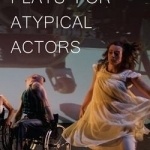
Atypical Plays for Atypical Actors
Book
Although disabled characters appear often in plays within the Western theatrical tradition, seldom...

